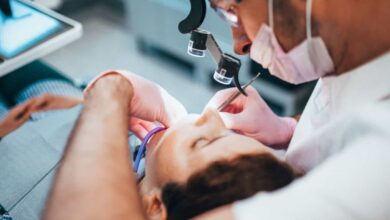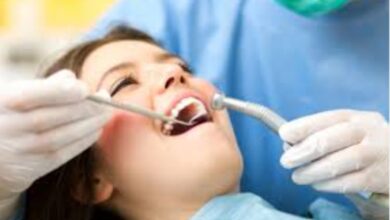Effective Sleep Apnea Treatment in Longmont: Your Guide to Better Sleep

Lifestyle Changes to Improve Sleep Apnea
It’s true, dealing with sleep apnea treatment in Longmont can be a real drag. But before you jump straight to medical interventions, there are some pretty impactful lifestyle tweaks you can make. These aren’t miracle cures, but they can seriously improve your sleep quality and overall well-being. Think of it as laying a solid foundation for any other treatments you might be considering.
Importance of Regular Exercise
Okay, I know, exercise. We hear it all the time, right? But seriously, regular physical activity is a game-changer when it comes to sleep apnea. It’s not just about losing weight (though that helps too!). Exercise can actually improve your sleep quality and boost your energy levels during the day. You don’t need to become a marathon runner; even a brisk walk for 30 minutes most days of the week can make a difference. Think about it: a walk in the park, a bike ride, even some gardening. Find something you enjoy, and stick with it.
Creating a Sleep-Friendly Environment
Your bedroom should be your sanctuary, a place where you can relax and drift off to sleep easily. But if it’s a chaotic mess, or full of distractions, that’s not going to happen. Here are a few things to consider:
- Keep it dark: Blackout curtains can be a lifesaver, especially if you live in a city with lots of light pollution.
- Keep it quiet: Use earplugs or a white noise machine to block out distracting sounds.
- Keep it cool: A slightly cooler room is generally better for sleep. Aim for around 65 degrees Fahrenheit.
- Ditch the screens: The blue light emitted from phones, tablets, and computers can interfere with your sleep cycle. Try to avoid screens for at least an hour before bed.
Creating a consistent sleep schedule is also key. Try to go to bed and wake up around the same time each day, even on weekends. This helps regulate your body’s natural sleep-wake cycle.
Managing Stress for Better Sleep
Stress is a sneaky little devil that can wreak havoc on your sleep. When you’re stressed, your body releases cortisol, which can make it harder to fall asleep and stay asleep. Finding ways to manage stress is super important. Here are some ideas:
- Meditation: Even just a few minutes of meditation each day can help calm your mind and reduce stress.
- Yoga: Yoga combines physical postures, breathing techniques, and meditation, making it a great way to relieve stress and improve sleep.
- Deep breathing exercises: Simple deep breathing exercises can help you relax your body and mind.
- Hobbies: Make time for activities you enjoy, whether it’s reading, painting, or spending time with loved ones. Doing things that make you happy can help reduce stress and improve your overall well-being.
Dietary Adjustments for Better Sleep
What you eat and drink can really mess with your sleep, especially if you have sleep apnea. It’s not just about feeling full or having to pee in the middle of the night; certain foods and drinks can actually make your sleep apnea worse. I’ve been trying to make some changes myself, and it’s surprising how much of a difference it can make.
Foods to Avoid Before Bedtime
Okay, so this is the hard part. Late-night snacking is my weakness, but some foods are just terrible for sleep apnea. Anything that’s high in fat, like pizza or burgers, can make it harder to breathe because they can cause inflammation. Also, alcohol is a big no-no because it relaxes your throat muscles, which is exactly what you don’t want when you’re trying to keep your airway open. And, of course, caffeine is a classic sleep disruptor. I try to cut it off after noon, but sometimes that afternoon coffee is just too tempting.
Here’s a quick list of things I try to avoid before bed:
- Fatty foods (pizza, burgers, fries)
- Alcohol (wine, beer, spirits)
- Caffeinated drinks (coffee, tea, soda)
- Spicy foods (can cause heartburn)
Benefits of a Balanced Diet
Eating healthy isn’t just good for your waistline; it can also help with sleep apnea. A diet that’s full of fruits, vegetables, and lean protein can help you maintain a healthy weight, which is super important because excess weight is a major risk factor for sleep apnea. Plus, getting enough vitamins and minerals can help reduce inflammation and improve your overall health. I’ve been trying to incorporate more salads and grilled chicken into my diet, and I actually feel like I have more energy during the day.
Hydration and Sleep Quality
Staying hydrated is important, but you don’t want to overdo it before bed. Drinking too much water right before you go to sleep can lead to multiple trips to the bathroom, which can disrupt your sleep. I try to drink most of my water during the day and then just sip on something small in the evening. It’s also worth noting that sugary drinks can actually dehydrate you, so it’s best to stick to water or herbal tea.
It’s all about finding a balance that works for you. I’ve found that making small changes to my diet has made a big difference in my sleep quality. It’s not always easy, but it’s definitely worth it.
Exploring Treatment Options for Sleep Apnea in Longmont
It’s good to know there are options when dealing with sleep apnea. It’s not a one-size-fits-all kind of thing, and what works for your neighbor might not work for you. Let’s look at some common treatments available right here in Longmont.
CPAP Therapy: Benefits and Challenges
CPAP, or Continuous Positive Airway Pressure, is a pretty standard treatment. Basically, you wear a mask while you sleep, and it blows air into your airways to keep them open. It can really help with sleep quality, but some people find the mask uncomfortable, or the machine is too loud. It can take some getting used to, and it’s worth talking to your doctor about different mask options to find one that fits well.
Alternative Treatments to CPAP
CPAP isn’t for everyone, and that’s totally fine. There are other things you can try. Oral appliances are one option; they’re like mouthguards that shift your jaw or tongue to keep your airway open. Surgery is another possibility, especially if there’s a physical issue causing the apnea, like enlarged tonsils. And then there are lifestyle changes, like losing weight or sleeping on your side, which can make a big difference for some people.
Surgical Options for Severe Cases
For some folks, surgery might be the best way to go, especially if other treatments haven’t worked or if there’s a clear anatomical problem. There are different types of surgeries, and it really depends on what’s causing the sleep apnea. It’s a bigger step than other treatments, but it can be a long-term solution for severe cases.
Choosing a treatment is a personal thing. Think about how bad your sleep apnea is, what your lifestyle is like, and what you’re comfortable with. It’s all about finding something you can stick with over time.
Here are some things to consider when picking a treatment:
- Try different approaches: Don’t be afraid to explore different treatments, from CPAP to oral appliances to lifestyle changes.
- Evaluate comfort and convenience: Think about what fits best with your daily routine and preferences.
- Talk to your doctor: They can help you weigh the pros and cons of each option and find the best fit for you.
Finding the Right Sleep Apnea Specialist in Longmont
Qualities to Look for in a Specialist
Finding the right sleep apnea specialist in Longmont can feel overwhelming. You want someone who’s not just knowledgeable but also makes you feel at ease. Experience is important, so look for someone who has dealt with different kinds of sleep apnea cases. A good specialist will explain your condition and treatment options clearly. It’s also helpful if they keep up with the latest advancements, like alternative therapies.
Top-Rated Specialists in Longmont
Longmont has some highly-rated sleep apnea specialists. They’re known for effective treatments and focusing on the patient. Some offer a wide range of services, from fitting CPAP machines to custom dental appliances. You might even find a dentist in Longmont who specializes in sleep apnea. When picking a specialist, think about their reputation, what other patients say, and the treatments they offer.
Questions to Ask Your Sleep Apnea Doctor
Before you commit to a specialist, ask some questions. Here are a few ideas:
- What treatment do you suggest for my specific situation?
- How do you handle follow-up appointments?
- What should I do in case of an emergency?
Finding the right specialist is like finding a good mechanic for your car. You want someone reliable, who understands your needs and helps keep everything running smoothly. With the right care, managing sleep apnea becomes a whole lot easier.
Innovative Solutions for Sleep Apnea Treatment in Longmont
Custom Oral Appliances for Comfort
CPAP machines aren’t for everyone, and thankfully, there are other options out there. One popular alternative is custom oral appliances. These devices are designed to fit in your mouth like a mouthguard and work by repositioning your jaw or tongue to keep your airway open during sleep. They’re often more comfortable and less intrusive than CPAP masks. I know a few people who swear by them, saying they’re a game-changer for travel and just overall comfort.
Emerging Technologies in Sleep Apnea Care
Sleep apnea treatment is constantly evolving, with new technologies popping up all the time. Here are a few things I’ve been reading about:
- Hypoglossal Nerve Stimulation: A small device implanted in your chest stimulates the nerve that controls your tongue, preventing it from blocking your airway.
- Positional Therapy Devices: These gadgets help you avoid sleeping on your back, which can worsen sleep apnea. Some are wearable and vibrate gently when you roll onto your back.
- Advanced CPAP Masks: Manufacturers are always working on making CPAP masks more comfortable and less bulky. Newer models are lighter, quieter, and have better seals.
It’s pretty cool to see how technology is changing the way we deal with sleep apnea. It’s not just about CPAP anymore; there are so many different avenues to explore, and it’s worth chatting with your doctor about what might be the best fit for you.
Holistic Approaches to Treatment
Sometimes, treating sleep apnea isn’t just about machines or devices; it’s about looking at the bigger picture. Holistic approaches consider your overall well-being and incorporate lifestyle changes to improve your sleep. This might include:
- Yoga and meditation to reduce stress and improve breathing.
- Working with a nutritionist to optimize your diet and lose weight.
- Acupuncture to help relax muscles and improve sleep quality.
Combining these holistic options alongside medical guidance can lead to a more restful and healthier sleep experience. It’s all about finding what works best for your body and your lifestyle.




